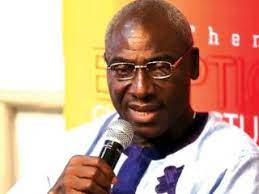Media stakeholders have called for the establishment of a National Response Mechanism (NRM) to address the issue of safety of journalists (SOJ) in Nigeria based on global best practices. The mechanism, they said, should rest on the four pillars emanating from the UN Plan of Action on the Safety of Journalists (UNPA) namely: Prevention, Protection, Prosecution and Partnerships.
They further recommended that there should be wide engagement and consultations with stakeholders who may have important roles to play in the proposed NRM including but not limited to the Federal and state governments, media regulatory bodies, the Directorate of Information of the security and defence agencies, non-state actors such as civil society groups and relevant professional bodies including the bar and the bench, media professional bodies and associations and the National Human Rights Commission.
These and other recommendations were made at the one-day roundtable organised by the International Press Centre (IPC) in Abuja on August 24, 2022.
The event brought together twenty-five participants from civil society organisations, the media, media associations and regulatory bodies, among others, under the project titled “Contextualising and Publicising Real Costs and Mobilising Against Increasing Violation of Media Freedom, Journalists Rights and Freedom of Expression”.
Two presentations were made at the round table: Mr. Edetaen Ojo, Executive Director, Media Rights Agenda (MRA) made a presentations titled “Establishing National Response Mechanism on Safety of Journalists: An Examination of Global Trends while Mr. Mojeed Musikilu, Editor-in-Chief/Chief Operating Officer of Premium Times Nigeria and President, Nigeria chapter of the International Press Institute (IPI) explored the topic “Response Mechanism on Safety of Journalists: Experience and Lessons from Engagement with Security Agencies and Government”.
The discussion that followed the presentations was done under the overarching framework of the necessity to give effect to the six thematic areas of the United Nations Plan of Action on the safety of journalists incorporating Raising Awareness; Standard Setting and Policymaking; Monitoring and Reporting; Capacity Building; Research; and Coalition Building.
Furthermore, participants recommended that the national response mechanism should be guided by comprehensive legislative framework on protecting the right to life, freedom of expression and associated rights, which should be regularly reviewed to ensure that the safeguards and enforcement machinery it provides are robust and effective in practice.
They said that the NRM should secure the buy-in of the law enforcement agencies and for redress and protection mechanisms for journalists who may be victims of harassment or assault
To get a gender perspective and balance, participants said that there should be special consultation with the National Council of Women Societies, Nigeria Association of Women Journalists (NAWOJ), and Ministry of Women Affairs on the specific dangers and harassment faced by female journalists particularly when on the frontlines.
Participaants also suggested that in outlining the mandate of the NRM consideration should be given to investigations into killings, attacks, and ill-treatment of journalists, which must be prompt, effective and impartial, and subject to public scrutiny.
They also called for sensitisation and awareness-raising on the necessity for the NRM.
The participants appreciated the Shehu Musa Yar’ Adua Foundation, Ford Foundation, Luminate and OSIWA for supporting the workshop through the funding of the project on ‘Contextualizing and Publicizing Real Costs and Mobilising Against Increasing Violation of Media Freedom, Journalists Rights and Freedom of Expression’.







